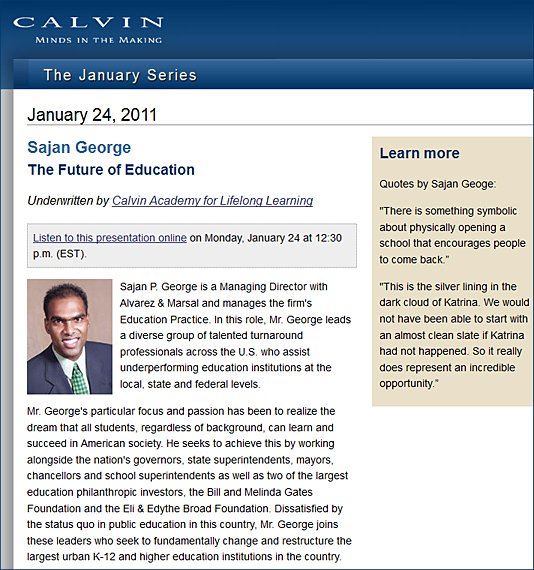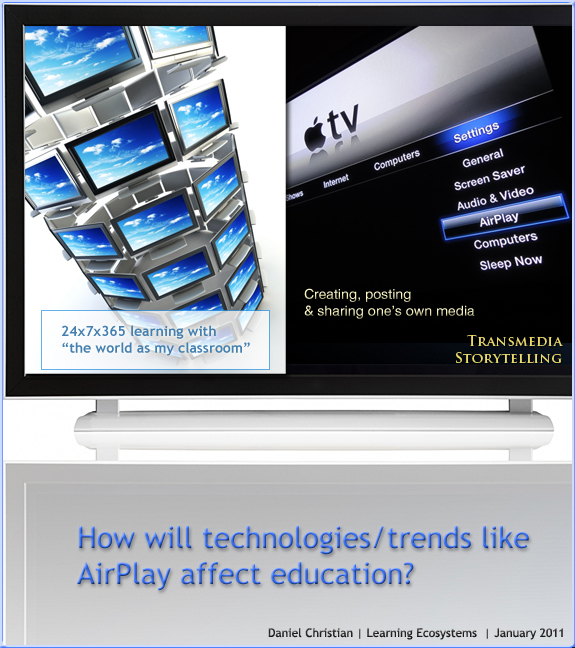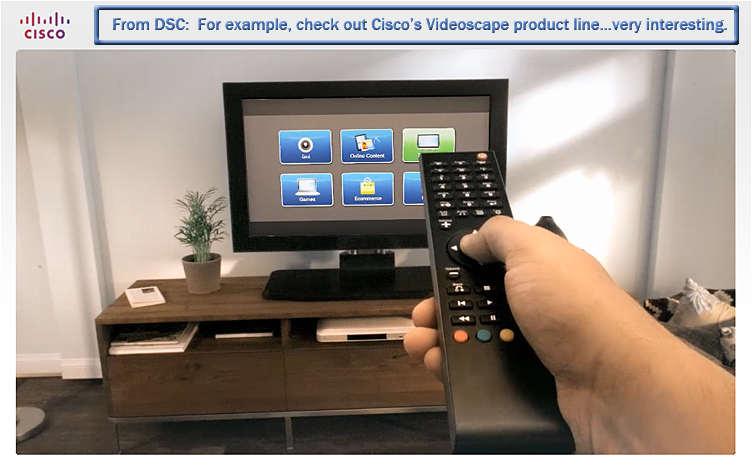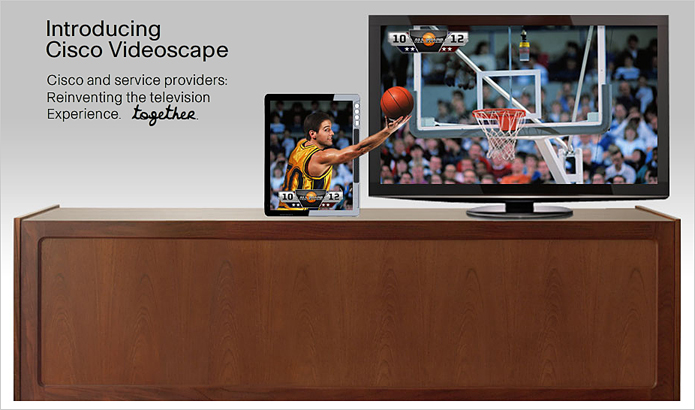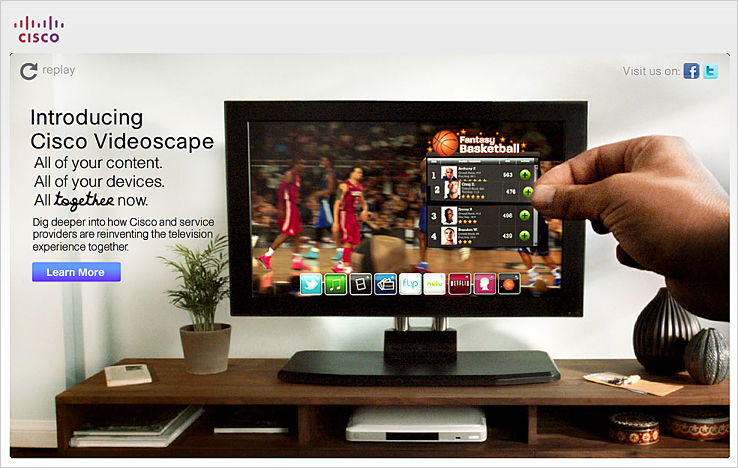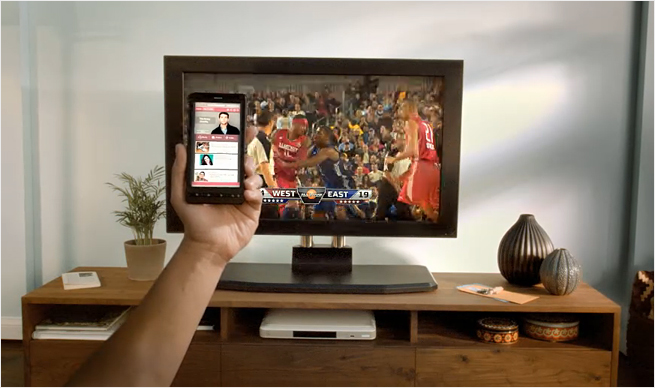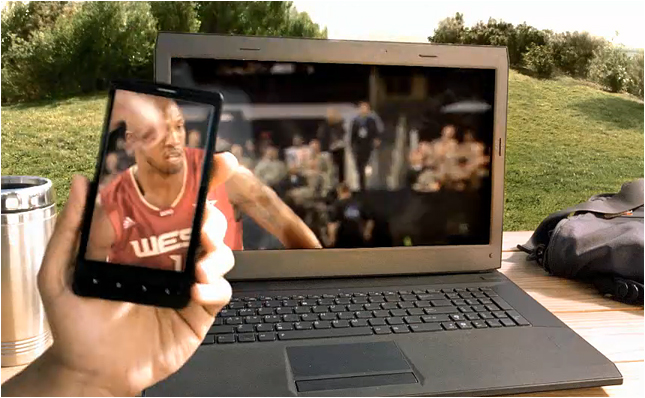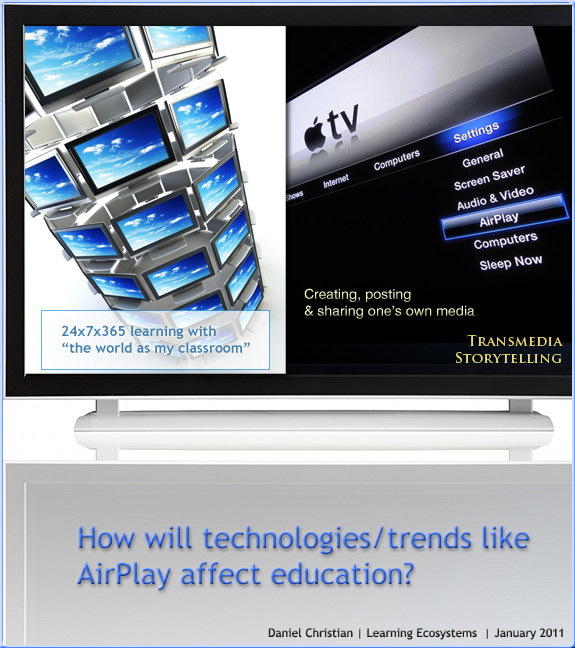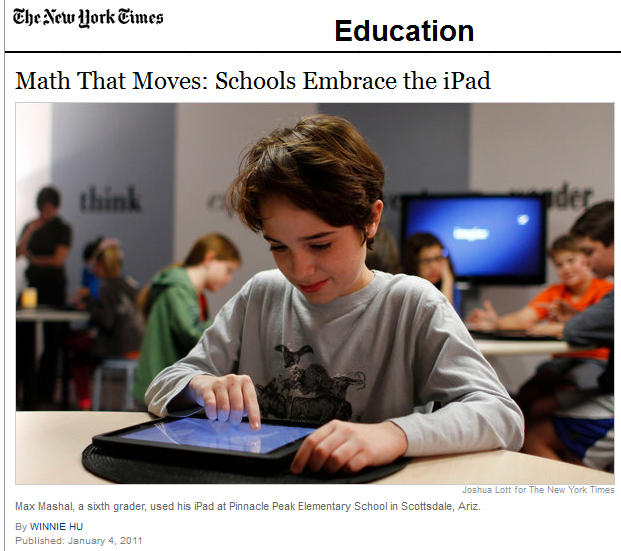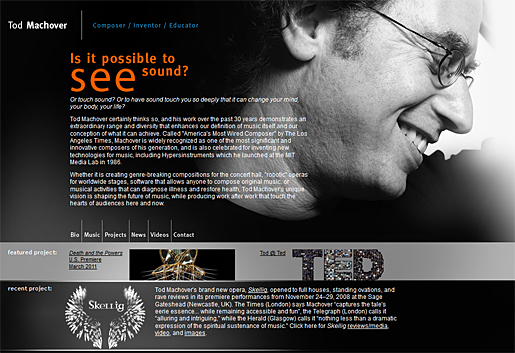From DSC:
It shouldn’t surprise anyone who knows my work when I say that I think Sajan George is right on the mark! 🙂
For example, below are the main points of what I heard him say (with some graphics of my own that back up what I have been saying):
Sajan George: The Future of Education
January Series at Calvin College (January 24, 2011)
We are living in a new age, the Conceptual Age — primary skill sets that we now need are for creators and empathizers. Why? Because those two skillsets aren’t easily automated or outsourced (Sajan referenced Dan Pink’s work).
We built our education system in between the agricultural and industrial ages; mass production model was built during a much different time with different needs.
Speed and acceleration of change has greatly increased. At a phenomenal pace!
From DSC:
You may have seen me post this graphic a few times:

Sajan gave an example that focused on an older model of a coffee maker vs. a newer model: Coffee Maker 1.0 vs. Coffee Maker 2.0. Point was that we still need skills, but design, esthetic, and emotion have become more important.
Also, we live in a society that demands Coffee Maker 2.0 — but our educational systems are still offering Education 1.0. We are still batching kids by age, using a 1-to-many model, etc.
We still are offering “Education 1.0” where
- Content is king
- Collaboration is cheating
- Poor performance gets you an F – discouraging
- Teacher role = expert
…but we are living in a “Society 2.0” world
- Experience is king
- Collaboration is encouraged
- Performance is rewarded; like game designers, encouraged to try again
- Teacher and student roles are interchangeable; teacher more of a facilitator
Also, our current methods of educating students is not scalable, not sustainable!
Previous attempts at changing our educational systems have failed because they’ve been trying to fix the status quo of education! It’s a design problem.
From DSC:
You may have seen me post this graphic a few times:
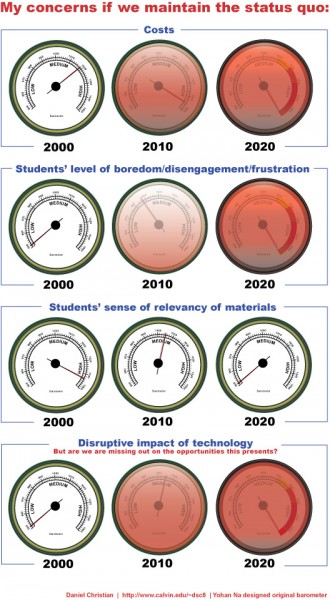
Current educational system needs to be completely blown up and redesigned! We live in a digital world, yet kids sitting in analog world.
Technology that customizes learning – recommendation engines, adaptive learning; personalized/customized learning.
Online learning is scalable, sustainable – while offering instantaneous feedback. Per Sajan, “But it’s happening on the fringes; home school kids; supplemental, etc.”
Hybrid environment – hoping to nationally launch this year
- Each student gets 2 teachers
- Netbook w/ curriculum – w/ lessons loaded
- Learning management system progresses each child at that student’s pace
- Bulk is in online engine
- Teachers don’t have to lesson plan, grade, etc. – so what do they do? The role of the teacher changes to being a facilitator of learning – a coach, mentor, a guide. Can build better, closer relationships.
Use data to differentiate instruction.
Design problem in education.
Hybrid learning <– Sajan’s current work promoting this model; brings power of human interaction with the customization that technology can bring.
From DSC:
You may have seen this graphic I’ve posted a few times — that aims to capture the best of both worlds:
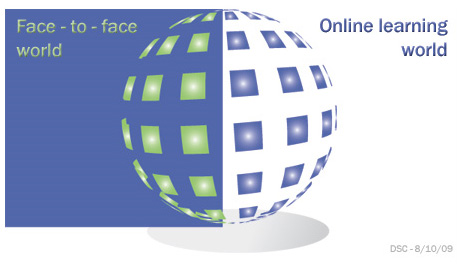
When trying to change things, you need a compelling vision of what you are trying to build/achieve.
From DSC:
You may have seen the vision I was trying to relay here.
From Q&A session…with a hybrid mode:
- Not labeling some kids as struggling students; teachers forced to leave some behind while trying to keep the plates spinning over there for kids who are getting it









